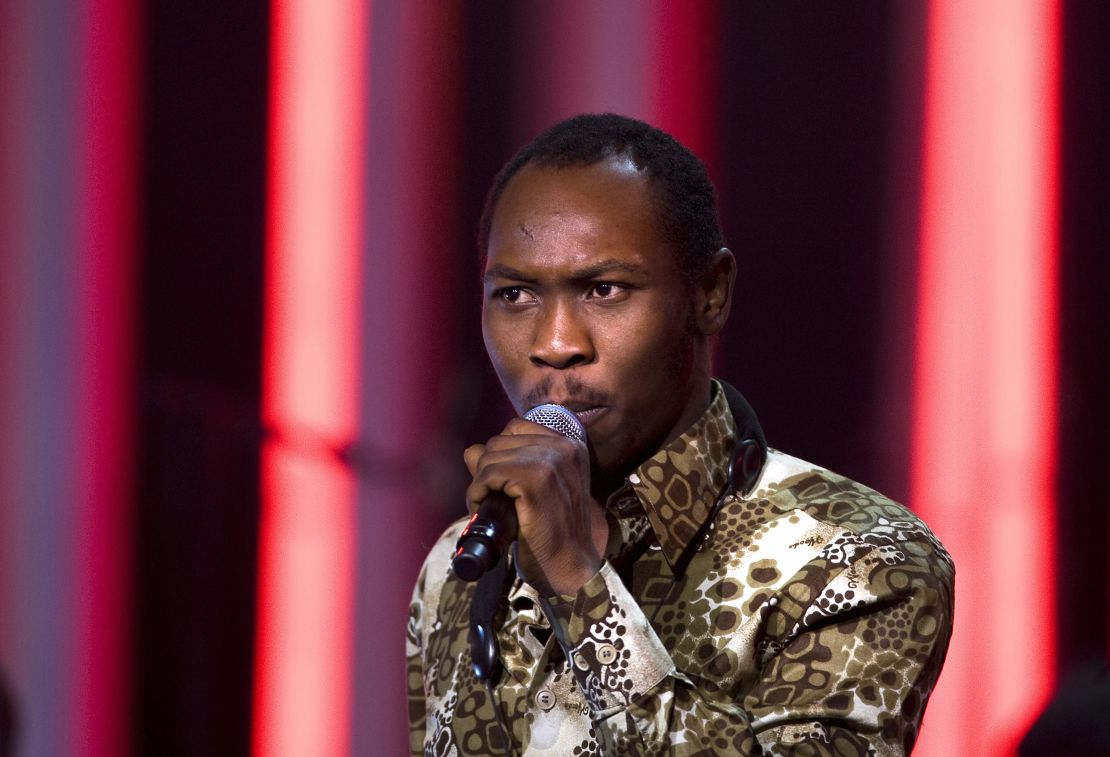Editor’s Note: Seun Anikulapo-Kuti is a Nigerian musician and son of legendary afrobeat innovator Fela Kuti. Seun has been leading demonstrations in Lagos State against the fuel subsidy removal in Nigeria. Below he writes for CNN about why he is against the government’s decision to stop subsidizing the cost of fuel.
Story highlights
Seun Kuti says previous fuel subsidy reductions have not resulted in better infrastructure
The removal of subsidies, says Kuti, is in line with IMF policy but harms Nigerians
He argues that the people do not trust the government to honor their promises
Kuti thinks the subsidy should only be removed when Nigeria stops importing petrol
Africa to represent Africans, a glorious dream. But that is what it has been for all this while, just a dream. Over time, as years have rolled into decades, Africans have become more and more subjugated to the decisions and policies that our former colonial masters propose, and with the aid of visionless leaders, they tell us that it’s the best thing for the people.
It is not the first time subsidies have been removed in Nigeria. Former president Olusegun Obasanjo reduced it eight times during his tenure, with the cost of gasoline increasing from 20 naira (12 cents) to 70 naira (43 cents). Each time Nigerians were promised better infrastructure and investment.
Recently all subsidy was removed from diesel fuel and during this time, ordinary Nigerians have not seen any impact of the savings in their lives. In fact, life has become worse for them with life expectancy now at an average of 45 years, according to a 2010 United Nation Report.

Corruption has been the main problem of most African countries for over half a century; it is shameful and disrespectful to the spirit of our forefathers’ struggles for a free Africa.
It hasn’t been too long that we recovered from the pains and delusions of an IMF-imposed structural adjustment program (SAP) in the country, which ran for more than a decade and put us in a worse situation than we were in before it was implemented.
General Babangida, the then head of state, deregulated all sectors and removed government subsidies from almost every sector of production in line with IMF and World Bank directives towards a more open capitalist economy. The result: inflation shot up. We recovered from the pain and delusions but the poverty still remains with us.
This subsidy removal is the latest in a long line of foreign concepts and ideologies that are being forced down the people’s throats. What the Nigerian government has failed to realize is that we cannot continue to model our economies on foreign blueprints.
What is behind the fuel protests?
I believe the fuel subsidy removal is callous and does not take into consideration the hardships facing the people. Nigeria’s Central Bank governor, Sanusi Lamido Sanusi, stated in a town hall meeting on fuel subsidy that 90% of Nigerians live on less that 2$ a day. Yet, the government choose to charge their own people $1 per liter for petrol, without consideration of how people are going to survive. This is treason against the people of Nigeria.
One of the reasons given for subsidy removal is that ordinary Nigerians don’t really benefit, but it is a secret cabal behind importing fuel that is benefiting from subsidy and removing it will kill off their influence in the market, but the people disagree with this.
The people do not trust the government to honor their promises. We have heard different successive governments come in and say they are not corrupt and want to build infrastructure but end up being the exact opposite.
We the people no longer want to be the doormats on which our politicians wipe their feet on their way into luxury and comfort. Nothing has improved in education, agriculture, housing, or transport; even our sports industry has been decimated.
We have inadequate electricity in Nigeria so everything runs on generators; even the power plants are powered by generators. These generators run on petrol and diesel fuel. With an increase in the price of petrol by 117% from 65 naira (40 cents) to 141 naira (86 cents) and even 200 naira ($1.23) in some places, virtually everything in Nigeria has risen in price overnight. How can the government even talk of saving any money with this kind of inflation crippling the buying power of the population?
Worse still, President Goodluck Jonathan says he is introducing measures to help reduce our suffering and he comes up with 1,600 diesel buses as a solution. This is an insult to Nigerians. This number of buses is not adequate for a population of 160 million. How is this a cushioning effect? It doesn’t even scratch the surface of the pain we shall have to endure. That works out to 100,000 people per bus.
I do understand that the government needs to raise money fast but the suffering of the people cannot be an option. I personally support the removal of subsidy when our government fixes our refineries so we do not have to import petroleum. They also need to be transparent about how much it costs to actually produce a liter of petrol.
We the people of Nigeria will fight for the right to survive in the face of tyranny and deceit and I am calling on all the great Nigerian youths to join the mass action and rally everywhere in the country and abroad.
The opinions expressed in this commentary are solely those of Seun Anikulapo-Kuti.





